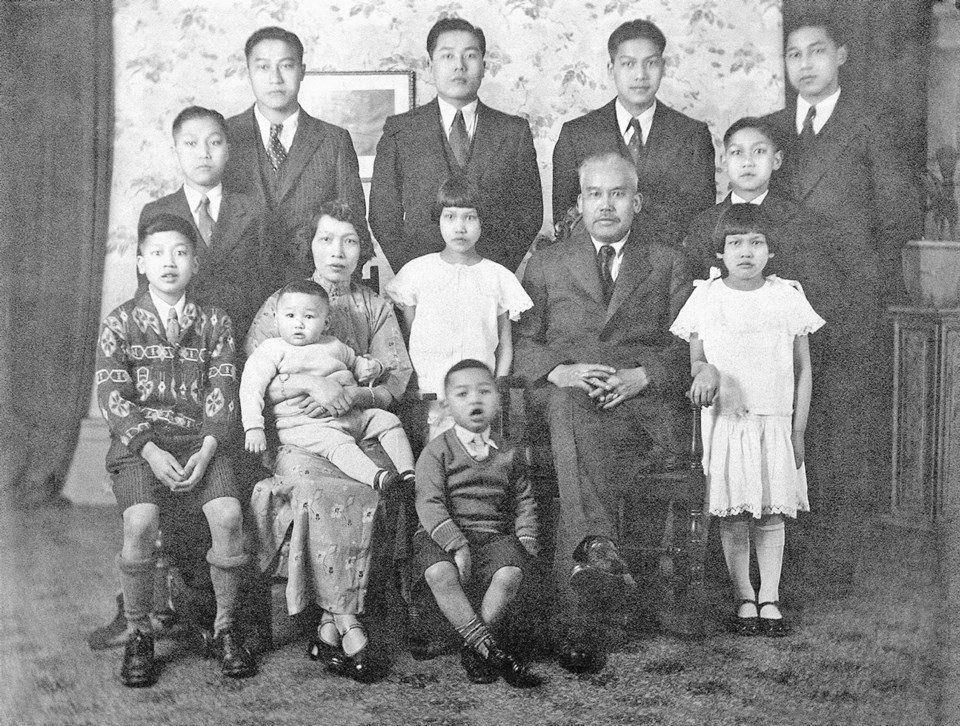Bringing out the best in ourselves
Re: “A history lesson from H.Y. Louie: kindness and charity overcome all,” commentary, May 23.
The commentary by Tzu-I Chung of the Royal B.C. Museum is a heartening antidote to the racial slurs and attacks which bedevil these times. Her account led me to learn more about Hok Yat Louie’s business and his principles.
H.Y. Louie — the company and the family — brought out the best in themselves and their workers. Perhaps reflecting on what they accomplished can bring out the best in us, too.
George Jamieson
Victoria
We need to restore Clover Point
Re: “Clover Point has no clover and that’s a problem,” May 20.
Yes, time has come to restore and enhance Clover Point thoughtfully. This beautiful headland is arguably Victoria’s most stimulating viewpoint on the Salish Sea.
Bring back the springbank clover, install a serious perch for bald eagles, and highlight the site’s exceptional natural and cultural features.
It is a perfect place to watch birds and wildlife, storms and the sun go by.
Completely surrounded by historic Victoria Harbour Migratory Bird Sanctuary (established in 1923), migrating Brant still stage there in the spring, right in the city.
Let’s ensure that this keeps happening forever. After all, the establishment of this historic bird sanctuary had lots to do with Brant conservation in the first place.
There are no better places to celebrate nature in the city, Greater Victoria’s greatest asset.
Jacques Sirois, naturalist
Representative, Victoria Harbour Migratory Bird Sanctuary
What it was like to live at Clover Point
I was a child living in the former army barracks on Clover Point after the war and during a Victoria housing crisis in about 1947. I spent a lot of time deep in the clover. I searched for and found many four-leaved clovers that I would dry between papers and send to my extended family in Montreal. I thought it wonderful that a place called “Clover Point” would actually be covered in clover.
Since then I have studied the interesting history of Clover Point.
Do people know that there was an underground tunnel on the extended point that housed a search light? The light worked in tandem with the search light at Fort Rod Hill. These lights were checking for Japanese submarines during the Second World War.
After the war, the barracks were converted to emergency housing. The winter there was very cold buffeted by constant wind but the spring and summer months were pure joy for children.
Marilyn Welch
Victoria
Helping homeless vs. building bike lanes
Thanks to the COVID-19 pandemic, the homeless crisis in our city has been brought into sharp focus. Placing people without a residence in tents is only a makeshift solution.
I believe building bike lanes has been a good thing, expanding the different modes of safer transit in the city. However, I have been asking myself for awhile now whether it would have made more sense for the city to use some of those funds to reinforce the support system for the homeless and to fund policing so that all residents, including the homeless, might feel safer.
Deb Boyce
Victoria
Encampment at park is near a school
Why in heaven is the city tolerating three street-people encampments just yards away from South Park Elementary School at Douglas and Michigan Streets and its vulnerable students, and across from one of the main public entry points to our crown jewel, Beacon Hill Park?
Stan Bartlett
Victoria
A recovery that’s sustainable and local
I agree we need to become more adept here at home providing the basic needs to survive in times of crisis. We also need this in our “new normal.”
This may require entrepreneurs and small companies to receive financial assistance through targeted federal and provincial grants, help in navigating regulatory red tape and access to research and development opportunities.
We need to strengthen our local businesses and capitalize on our sophisticated Canadian workforce.
As suggested by another letter writer, we should increase our ability to provide for ourselves and work toward a recovery that creates jobs in sustainable industries.
Our recovery can be both environmental and economical.
Industries can create and expand here in Canada in such areas as electric vehicle production, solar and wind generation and construction projects that produce net zero greenhouse gas emissions.
But let’s not forget those micro Canadian businesses that are providing our needs and wants as sustainably as possible at a local level. I am aware of young entrepreneurs designing, producing and selling clothing here in Canada, providing jobs to those in their city and requiring less transportation of goods.
Complementing this business is another young Canadian, a supplier of fabric committed to sustainable sourcing.
Think of the potential if we demand, by our shopping habits, a sustainable economic and environmental recovery.
Carol Brown
Victoria
Correction: risk of contracting coronavirus
A letter from Dr. Jason Wale, published in the Saturday Times Colonist, should have said that the “the risk of contracting the coronavirus from surfaces is vanishingly small.” Due to an editing error, the phrase “from surfaces” did not appear in print.
As Wale notes, “the risk of contracting this virus is very real and very high with casual contact.”
Send us your letters
• Email: letters@timescolonist.com
• Mail: Letters to the editor, Times Colonist, 2621 Douglas St., Victoria, B.C. V8T 4M2.
Letters should be no longer than 250 words and may be edited for length, legality or clarity. Include your full name, address and telephone number. Avoid sending your letters as an email attachment.



